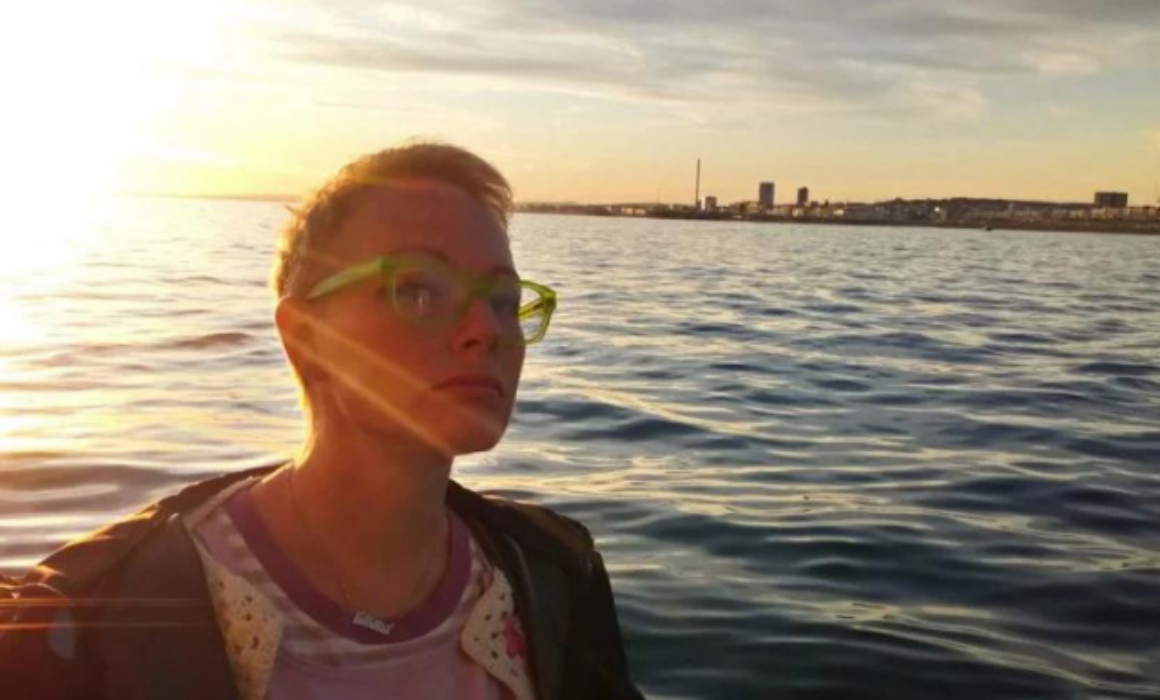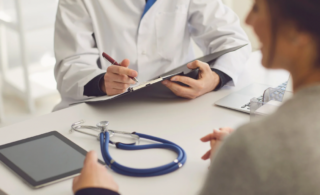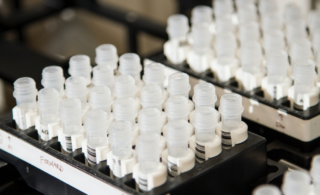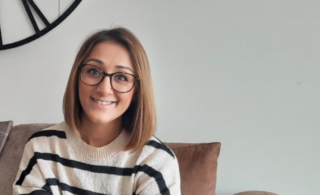
Let's Nail Breast Cancer - Help support our urgent appeal on the 19th - 20th May 2024
Let's Nail Breast Cancer - Help support our urgent appeal on the 19th - 20th May 2024
Let's Nail Breast Cancer - Help support our urgent appeal on the 19th - 20th May 2024
Let's Nail Breast Cancer - Help support our urgent appeal on the 19th - 20th May 2024
Let's Nail Breast Cancer - Help support our urgent appeal on the 19th - 20th May 2024
Emma’s article talks about the difficult time at the end of breast cancer treatment when you are trying to get back to normal but also dealing with the impact of what just happened whilst also juggling all the regular things that we have to deal with in normal life.
By Emma Sola
Another broken night
It’s another broken night of clock checking and internal negotiations. My mind thrums and whirrs, restlessly unable to settle on any thought for longer than a nano-second. As the seemingly constant rain beats down outside, my worries made tangible, I try to trick myself back into repose. But I am too clever for myself and I know how all the tricks work. 4.15 am. Got to be up at 6 anyway. In the end, it is better to just get up and get on with it, my life now sponsored by the Samuel Beckett quote “I can’t go on. I’ll go on.” Because what is the alternative? Making that first move to swing my stiff, oestrogen free body out of bed is always the best choice I ever make.
Normal life
A year and a half on from my actual diagnosis of breast cancer, and two years on from an attempt at getting a diagnosis, I am back experiencing what I believe is known as “normal life”. I am a deputy head of English at a secondary school – and whilst I returned to work in February after completing radical treatment, September was always going to be the crunch test. I spent March – July just grappling with the clinical trial drug I am on which came with a range of deeply unpleasant side effects, one of which requiring urgent proximity to a lavatory (not ideal when teaching). With my dose reduced in an attempt to manage the symptoms, Letrozole and Goserelin on Zero Oestrogen duties and my itchy mastectomy bra and sweat inducing prosthetic in place, I was back in the classroom.
On the whole the kids have been absolutely delightful, as they always are. They listened patiently and kindly when I explained to them that I have had cancer, and I am in ongoing treatment, that I do get quite tired and that sometimes I may not wear my false boob. And they have tried to remember this on Period 5 on a Friday when I want them to answer a practice exam question but they want to discuss who has a crush on who. In the Exhaustion Olympics, teachers face stiff competition from police, paramedics, front-line medical staff in A and E and other high stress public serving roles, but you have never known the mind numbing tiredness a teacher feels until you have done it yourself. Imagine being in a small, hot room for up to five hours a day. A succession of people – mostly between the ages of 11 and 16 – troop in and out all day, in batches of 25-30.
The next batch is waiting to come in while the others are still leaving. You have to know everything about these people – from how they use a full stop, to what their home life is like. They don’t all necessarily want to be there – but you have to make them do things anyway, like read and answer questions about what they have read or write creatively on demand; answer their questions; stop them from shouting out “Foreskin!”; reassure them if they are anxious; check their uniform; ensure they don’t chew gum; monitor requests for the toilet and a million more. If you leave this room, you may encounter any number of people who need to talk to you. In person, via email, by telephone or by note, you are fair game at any stage in your day to be asked to do something or answer a question. Don’t even think about going to the toilet. You can’t. In the one minute you have time to do so, there is always someone else in there and if there isn’t and you make it in, someone can still talk to you through the door.
Daily drain
Much as I love my job, a day at school leaves you as drained of life force as if Dracula himself had decided to make you his birthday feast. The daily drainings take their toll. And of course, my job is not confined to simply being in a classroom telling people stuff. It bleeds endlessly into any time available. Every day is a work day for me.
So, busy job? Check. Ten year old son who does a million activities and needs help co-ordinating them? Check. Husband, house, cats, endless food shopping and attempts to eat healthily, exercise to attempt to stave off cancer recurrence, re-mortgage, complaint about misdiagnosis, worries about impending oophorectomy, trying to fit in friends and family, son’s secondary school application, writing, counselling? (no time), seemingly daily news about women dying unnecessarily from breast cancer, Brexit, the election, did I mention the constant, constant rain? And my cancer. My cancer? Oh God, I had it, it might come back. Is it there, in that twinge in my head? Is that metastatic breast cancer in the brain? CHECK.
Adrift at sea
The thing is, radical treatment allowed me to focus mainly on myself and being well, and everyone said how marvellously I coped. Give me time off work and I will cope with anything. I had time to plan and cook healthy meals; to run and swim; to write and paint; spend quality time with friends and family, and to see a counsellor. Now work is taking up 80% of my time and my ability to comprehend just where I am in all of this is seriously compromised. Stacks of unprocessed data on how I am feeling and who I am now and what I am doing are accumulating in my brain and ambushing me at night, waking me from my sleep and demanding to be dealt with. Some days I feel like I am adrift on the sea staring back at myself, unsure if that is actually me.
The last few months have been an exercise in going on, despite often not feeling capable. Cancelling all non-essential plans and living in fear of anything spontaneous being suggested – will my friends keep asking me out to lunch on a Sunday, or to see their band on a Tuesday night? Writing endless lists in an attempt at being in control. Attempting to ride the wave of exhaustion and confusion back to shore and hoping I find myself, intact. And actually looking forward to having my ovaries out at the end of November when I can go back to just focusing on me again for a few weeks, and the rain, I am sure, will probably cease.
To return to the homepage of our Information Hub, click here where you can access more helpful information, practical advice, personal stories and more.
Future Dreams hold a range of support groups, classes, workshops and events to help you and your carers during your breast cancer diagnosis. These are held both online and in person at the London-based Future Dreams House. To see what’s on offer and to book your place, see here.
September 2020 (Reviewed February 2024)
This article was written by a guest author based on their own experience of breast cancer and its treatment. It is important to note that this is one person’s experience and that whilst there may be commonalities between the experiences of different people, everyone has a different diagnosis/treatment plan/general experience. The information and content provided in all guest articles is intended for information and educational purposes only and is not intended to substitute for professional medical advice. It is important that all personalised care decisions should be made by your medical team. Please contact your medical team for advice on anything covered in this article and/or in relation to your personal situation. Please note that unless otherwise stated, Future Dreams has no affiliation to the guest author of this article and he/she/they have not been paid to write this article. There may be alternative options/products/information available which we encourage you to research when making decisions about treatment and support.
Share

Support awareness research
Donate to those touched by BREAST cancer
Sylvie and Danielle began Future Dreams with just £100 in 2008. They believed nobody should face breast cancer alone. Their legacy lives on in Future Dreams House. We couldn’t continue to fund support services for those touched by breast cancer, raise awareness of breast cancer and promote early diagnosis and advance research into secondary breast cancer without your help. Please consider partnering with us or making a donation.



